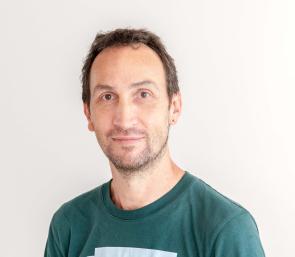
Research project
INFORMATIONS
-
Objectives and content
The aim of the dissertation is to develop the ability to structure a rigorous approach in an original field of research.
The dissertation also provides a synthesis of all the knowledge acquired throughout the student's course. The best papers are encouraged to be published in scientific journals or presented at international conferences, including the Audio Engineering Society congresses.
CONTENT
In the third year, the programme offers students the opportunity to attend a workshop focusing on research in the sound professions, as well as a module of methodology courses. These meetings provide the elements needed to research a subject relevant to the student's interests. As part of the tutorials organised by the course, students must write a note of intent describing the themes envisaged, the main problem associated with their subject, and their intentions for covering the subject (perceptive tests, physical measurements, surveys, bibliographical research, etc.). This note will be compulsory, and will be submitted in the form of an online form. It will be commented on and annotated by the members of the dissertation group.
After reading these finalised notes of intent, the feasibility of the project must be validated by the dissertation monitoring committee.
Dissertations are of a scientific nature and generally consist of three parts: state of the art, theoretical part, practical part (including listening tests, surveys or experiments). The minimum number of pages is set at 30, and considerable care is required in the distribution of the elements of the dissertation between the body and the appendices, as well as attention to the quality of the synthesis and presentation of the editorial elements and the quality of the analyses and proposals concerning the perspective of this work.
Each student works under the supervision of his/her dissertation supervisor. They must keep the supervisor regularly informed. The dissertation supervisor cannot be held responsible for inadequate communication. In addition, he or she will call on as many experts as necessary to complete the project, and may in particular seek advice from the dissertation group. In 4th year, before 15 December, and as part of the
the dissertation group requires an interim report to be submitted before the deadline, containing an introduction, a literature review, a precise description of the methodology used and the references associated with the work. At this point, students must be able to guarantee the involvement of a dissertation supervisor.
The dissertation must be handed in at least one month before the actual examination. The dissertation group will offer a commented rereading of the work to facilitate preparation for an oral presentation.
Students are only authorised to defend their dissertations if they receive a favourable opinion from the monitoring committee and the dissertation director concerned. This opinion will be given approximately 10 days after a finalised version of their dissertation has been submitted within the deadline.
As part of the visit to the Audio Engineering Society conference in the third year, students can come into contact with internationally recognised experts and subsequently present the results of their research at international conferences - subject to validation by the final dissertation jury.
-
Assessment terms and conditions
Submission of the written dissertation and oral defense (20 min presentation, 10 min for any listening, 30 min interaction with the jury).
Followed by :
Final certificate: "Production projects / Research project".
(joint certificate with the "production projects" study path)
During this certificate, in addition to presenting their production projects, students will present their research project.
The jury will judge the overall interest of the subject. It will judge
- the originality and interest of the choice of subject
- the quality, precision and clarity of the final presentation
- the quality of the writing
- the rigour with which the subject was dealt with and the validity of the experimental part
- the quality of the work
- mastery of the subject
The jury will be made up of 2 researchers or scientists who are specialists and experts in the research subjects presented, 2 professionals recognised for their skills and representative of the different styles and aesthetics of today's musical production, and a jury chairman representing the Conservatoire.
The candidate has 2 hours with the jury: the first hour is devoted to the research project, the second to the productions: the productions (or a selection of extracts) will be listened to in the presence of the jury for 20 minutes, after which the candidate will have 20 minutes to present them (context, project, technical resources, organisation, choices, etc.). He or she will then be available to the jury to answer any questions.
-
Erasmus
No


